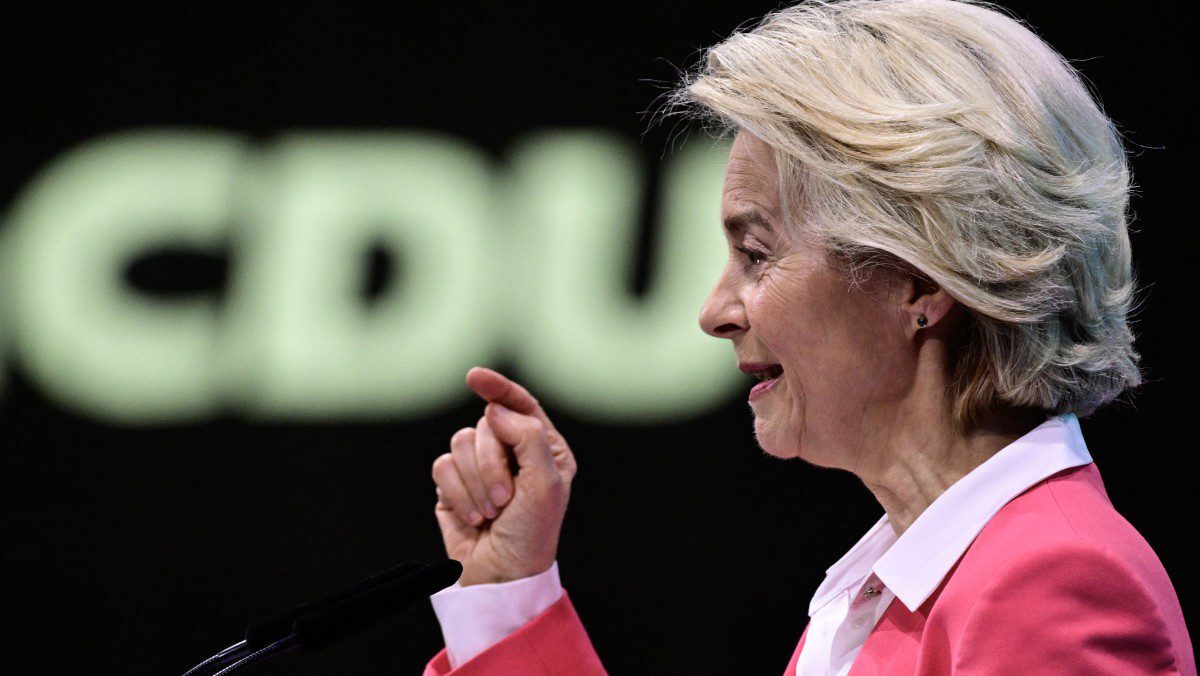
European Commission President and EPP lead candidate standing for re-election, Ursula von der Leyen addresses the Christian Democratic Union (CDU) party congress at the Estrel Berlin Hotel in Berlin, on May 8th, 2024.
Photo: JOHN MACDOUGALL / AFP
A public prosecutor is looking into corruption allegations surrounding President of the European Commission Ursula von der Leyen and her dubious procurement of 1.8 billion Pfizer COVID-19 vaccines.
Under media questioning, the Mönchengladbach public prosecutor’s office confirmed the news in a Junge Freiheit exclusive. It comes after an announcement in early April that the European Public Prosecutor’s Office (EPPO) was launching a probe into allegations of corruption and destruction of evidence.
The ‘Pfizergate’ scandal has been ongoing since early 2022 when it was revealed that von der Leyen privately brokered a pharmaceutical deal worth an estimated €35 billion—an official figure has never been released—via text messages with Pfizer CEO Albert Bourla. Subsequently, she claimed to have deleted all the messages for ‘security reasons’.
Serious conflict of interest questions arose when it was revealed that her husband, Heiko von der Leyen, was head of the U.S.-based biotech company Orgenesis, which had partnered with Pfizer to help develop and test its vaccine’s mRNA component, calling into question her neutrality on the matter.
The German investigation came only after continued insistence by management consultant and entrepreneur Michael Immel who, together with others, had filed a criminal complaint against the EU Commission chief back in May 2023.
However, this complaint was initially rejected by the Mönchengladbach public prosecutor’s office. Immel sought to have this decision overturned by the public prosecutor’s office in Düsseldorf, where his appeal was successful. Subsequently, the Mönchengladbach authorities were instructed to pursue an investigation.
Regardless of how von der Leyen fares on the legal front, things are looking anything but rosy for the embattled chief commissioner. The fast-approaching European elections on June 9th are likely to see a sovereigntist parliamentary contingent achieve substantial growth—undercutting her ambition to return as EU Commission President.
This is not von der Leyen’s first scandal. In March 2016, she survived a formal investigation by Hannover Medical School, prompted by revelations that over 40% of the pages in her doctoral thesis contained instances of plagiarism.
